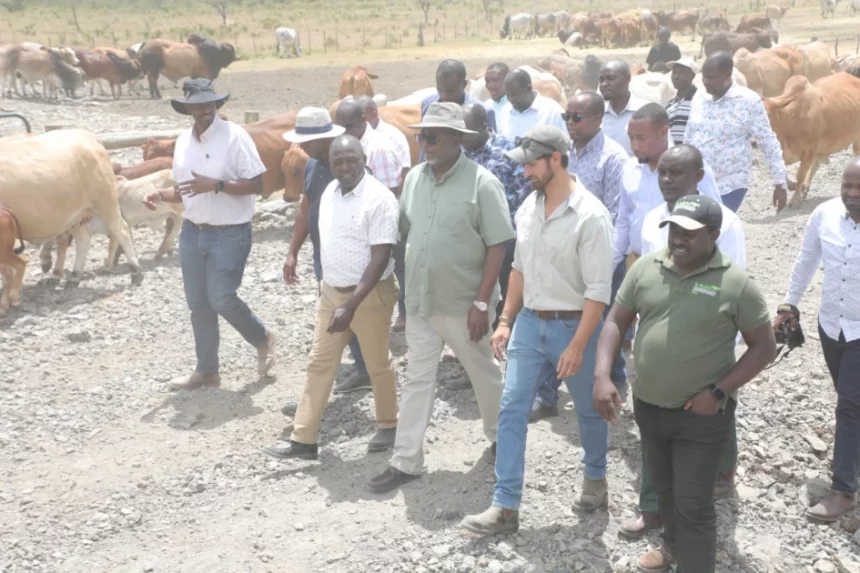The government has promised to increase the production of livestock in the country in a bid to boost meat and leather production.
Agriculture and Livestock Development Cabinet Secretary Mithika Linturi has outlined several measures that he has promised will revive the livestock industry in the country.
Top among them is the introduction of sexed semen at a subsidized fee, mass vaccination of livestock to prevent diseases and deaths of animals, fattening of cows and introduction of livestock nutrition for farmers.
The Cabinet Secretary has said the country cannot meet the international demand for beef and hide due to poor capacity building for farmers to improve their livestock production.
“We are keen on increasing productivity and changing the breeds of our animals, we will be rolling out a program to support our farmers by supplying sexed semen at very subsidised rates as well as transfer knowledge to them on modern livestock production,” said Linturi.
The Cabinet Secretary spoke at the Mutara Agricultural Development Corporation Ranch in Laikipia County during a fact-finding mission on how the ministry will revive Livestock farming.
The 33,000-acre ranch has the potential to breed beef and dairy farming.
Linturi promised the ADC ranch would be among the centres for livestock production.
The Cabinet Secretary was accompanied by the PS State Department for Livestock, Jonathan Mueke, and Laikipia Governor Joshua Irungu among other government officials.
The delegation later toured the Olepajeta Conservancy for benchmarking at the privately owned farm.
The CS also added that his ministry is committed to working with County Governments and creating a disease-free livestock environment for ease of trade and market linkages in the pastoralist counties.
“Livestock commercialization is one of the key pillars in the Bottom-Up Economic Transformation Agenda (BETA) in the Kenya Kwanza administration,” stated Linturi.
PS Mueke on his part promised that the government will do value addition in livestock farming to guarantee farmers more income.
“We are focused on doubling leather production to 60% in 2024 from 30% recorded in 2023,” added Mueke.
Mueke further stated that Kenya will no longer import leather products once the livestock sector is revived.
“The leather industry is a key value chain and we’re building quality to add value to the industry,” added Mueke.
Linturi further called for close collaboration between the national and county governments in order to control animal diseases and also increase the right breed of livestock.
“We appreciate the good work being done by large-scale private investors in the livestock sector and we want to support them by producing the right breed like the boran breed which is one of the most sought breed globally,” he said.
Governor Irungu hailed the government’s plan to revive the livestock sector and he called for a quick implementation of the periodic mass vaccination of livestock within pastoral communities to allow free movement of livestock and avoid diseases and deaths.



